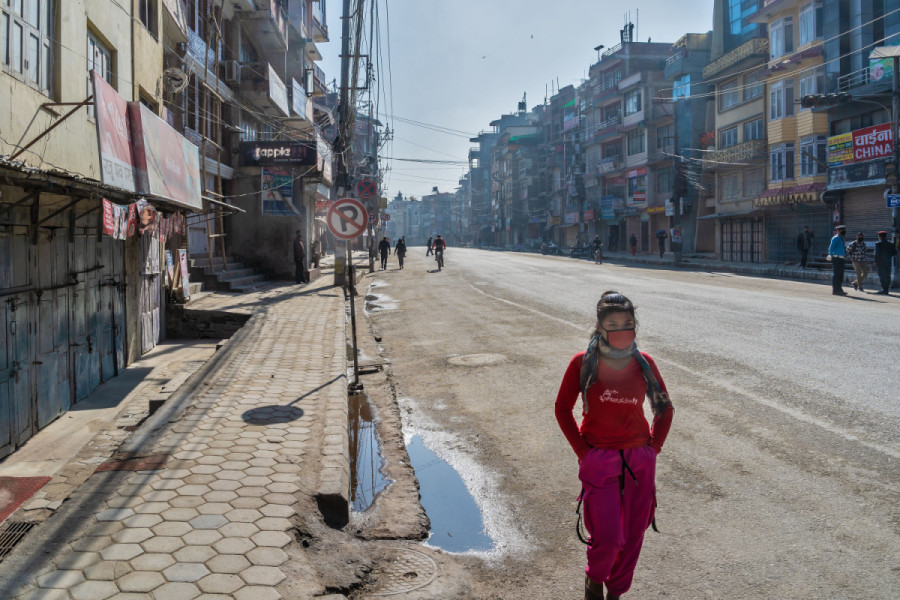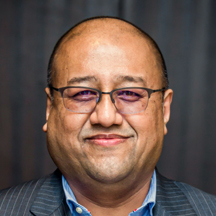Columns
The pandemic years
Covid-19 exposed a deep divide in how people perceive pandemics, science and vaccination.
Sujeev Shakya
I am looking forward to flying the same route again this week—Bangkok-Singapore- Bangkok. It was my last journey to this part of the world before the pandemic shut everything down. I want to trace back my steps and recall empty Changi Airport and Don Mueang Airport, where a few of us passengers were standing in a queue to buy a box of masks for $50. The experiences and memories of the pandemic are fading; it appears to be in the distant past, like the 10 years of the Maoist insurgency, the 2015 earthquake and the blockade and the floods.
It seems we have put the pandemic behind us as China has seen the great human movement of the year—the Lunar New Year travels. Contrary to front page predictions of millions dying, China managed its big festival with the least impact. Holiday travel rebounded to nearly 90 percent of normal levels, and the economy is surely opening up. South Asia, one of the world’s most populous regions, is practically back to normal.
Anti-vax campaigners
Covid-19 exposed the deep divide in how people perceive pandemics, science and preventive care through vaccination. We saw educated people in the West become big anti-vax campaigners and disbelievers in civic discipline. Despite a fractured government machinery, Nepal achieved one of the highest vaccination rates in Asia. We saw how pharmaceutical companies made billions by charging for orders that countries cancelled. We saw the goodwill Nepal earned, with assistance flooding in from well-wishers, while so many countries were overlooked and how our leadership dealt with the situation.
Tanzania is one of the few countries in the world that did not keep Covid-19 statistics, and then President John Magufuli succumbed to the virus. Rwanda, through the combination of a pro-active government and well-behaved citizens, ensured there was little impact. We saw how a country with a small population like Bhutan was challenged to manage the pandemic, and how the king led the fight against the pandemic from the front. City-states like Dubai managed the pandemic with a business mindset, attracting many new businesses, investors and people as people were moving away from Hong Kong and Singapore.
The pandemic also saw new yardsticks being established. Last week on a flight from Dhangadhi to Kathmandu, I wondered how airlines have now made high fares and no in-flight service the new normal. Even without in-flight service, an airline is not referred to as a budget airline, making people wonder what the difference is between a full-service airline and a budget airline. The category of hotels that functioned during the pandemic were for people who needed them and came with a steep price; some of the prices are yet to drop. Companies that got away with closing down to get rid of their long-serving staff have reopened with a fresh set of people, questioning the value system they operate in. Financial service providers operated a seller’s market as people had few choices. Services that closed after they became short-staffed when infections reached a peak did not reopen. Cleaning services impacted the cleanliness of operational areas as places could not be cleaned at regular intervals, but this has become the new normal.
We were lucky
Some countries suffered a lot and recovered slowly, while others did not. However, we have been lucky. Our government functioned and did not come to a standstill. Of course, buildings were built in the city with “pandemic earnings” as procurement graft and corruption peaked. People did not stop consuming. There was social security in terms of people sending money from abroad and farmland to grow the basics. When we see extravagant social functions like weddings and religious functions, we can bet that the pandemic has had little impact on earnings. We have accumulated many stories of near and dear ones lost, the near-death ordeals of people, and the innovative ways of keeping oneself going—by walking in the small alley outside your house or learning to cook or attending to your hobby or making endless group calls. They are memories that we will share with future generations.
For me, the pandemic has also been about continuing to write. Of course, I could manage an audio and e-book in Nepali, but I also found ways to keep reflections going. The ordeal of writing “The Other View” column in this newspaper every second Tuesday continued. So as we wish to get to the end of this pandemic, the columns have been packed into a compendium with the title The Pandemic Years. I thought it was an apt way to put the pandemic behind us and look forward.




 23.51°C Kathmandu
23.51°C Kathmandu















